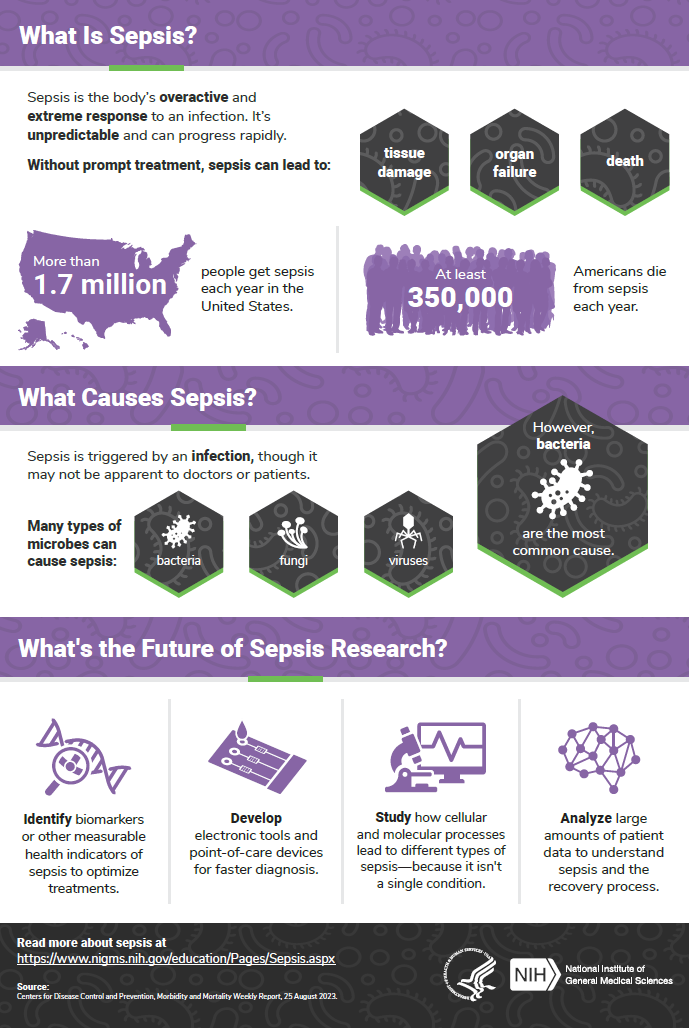Sepsis is a condition that can occur when a person’s immune system responds inappropriately to an insult, such as an infection or injury. This condition occurs unpredictably and can be life threatening. Of the 1.7 million adults in the U.S. who develop sepsis every year, at least 350,000 die as a result.

Unfortunately, we have no cure for sepsis. Existing treatment is limited to supportive care, such as fluids, and antimicrobial medicine if the suspected cause is an infection. For these reasons, NIGMS-funded scientists continue to ask and answer questions that will advance our understanding of sepsis and ultimately help patients overcome the condition. Researchers are studying topics including:
- Distinctions among different kinds of sepsis. Scientists are searching for faster and more accurate ways to diagnose and classify sepsis through blood tests. These tests could give health care providers information on the severity of the case and whether it might worsen, which can help them make decisions about treatment.
- Ways that the body fights sepsis. Some patients with sepsis recover and regain control of their immune response, but others don’t. Researchers are studying the recovery process to help them make new medicines that may be useful for controlling sepsis.
- Patient traits associated with sepsis. Sepsis is difficult to treat for many reasons, including the wide genetic diversity among humans. Researchers are collecting samples from sepsis patients to look for similarities among those who do or don’t recover from the disease, which may give clues about genetic risk factors for developing severe sepsis.
- New methods for studying sepsis. Researchers use experimental models to study how certain genes contribute to sepsis. However, it’s challenging to mimic human sepsis, and research organisms may offer only limited information on targets for new medicines. This is why researchers are more often studying patient-derived materials directly to learn what happens in the body after injury and the various medical conditions patients may have that affect sepsis risk and severity.
Recently, NIGMS-funded research led to the first FDA-approved, artificial intelligence-based sepsis diagnostic test (the Sepsis ImmunoScore). The impact of this exciting new development on sepsis care will be tested in the real world in the near future.
Visit our sepsis featured topic page for more information, including links to additional articles on sepsis, basic information for patients and their families, and educational resources.






